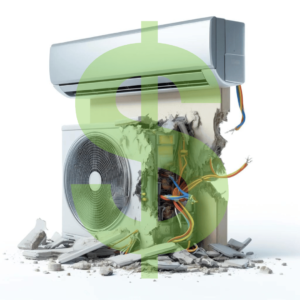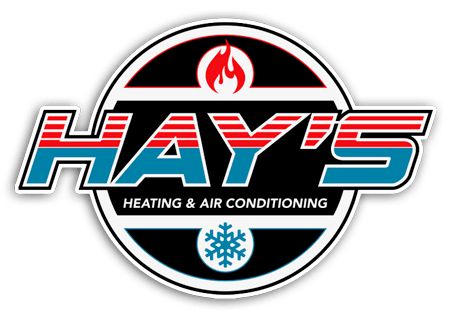When it comes to maintaining a comfortable home, a functional air conditioning system is essential, especially during the hot summer months. However, understanding the costs associated with AC repair can be a bit daunting. This article provides a comprehensive guide to AC repair cost averages nationwide, covering various aspects to help you make informed decisions.

How Much Does AC Repair Cost?
General Cost Range: The cost of AC repair can vary significantly, typically ranging from $100 to over $1,000. The exact amount depends on several factors, including the nature of the problem and the type of AC unit.
Factors Influencing Costs:
- Type of Repair: Minor issues like a refrigerant recharge or thermostat replacement may cost around $100-$300, while major repairs such as compressor issues or circuit board replacements can exceed $1,000.
- Brand and Model: The cost can also depend on the specific brand and model of your AC unit, as some parts may be more expensive or harder to find.
- Labor Costs: The expertise of the technician and the time required for the repair play a significant role in the overall cost.
- Geographical Location: Prices can vary based on your location, with urban areas generally having higher labor costs than rural areas.
Common Repair Costs:
- Refrigerant Recharge: $150-$400
- Thermostat Replacement: $100-$300
- Circuit Board Repair: $200-$600
- Fan Motor Replacement: $300-$600
Why is AC Repair So Expensive?
Specialized Knowledge and Skills: AC systems are complex and require technicians with specialized training and certifications to handle repairs safely and effectively. This expertise comes at a premium.
High-Quality Parts and Equipment: The cost of high-quality replacement parts and advanced diagnostic tools contributes to the overall expense. Using quality parts ensures the longevity and efficiency of your AC system.
Labor Intensive Process: AC repairs can be time-consuming and labor-intensive, especially for complex issues. Additionally, technicians must adhere to safety and environmental regulations, which can add to the costs.
Will Home Insurance Cover AC Repair?
Standard Home Insurance Policies: Most home insurance policies do not cover AC repairs due to regular wear and tear. However, they may cover damage resulting from specific perils like storms or fires.
Situations Where Insurance May Cover Repairs:
- Damage from Covered Perils: If your AC unit is damaged due to a covered event, such as a lightning strike or fire, your home insurance may cover the repair costs.
- Sudden and Accidental Damage: Some policies might cover sudden and accidental damage, but it’s crucial to check your policy details.
How to File a Claim:
- Steps to Take: Contact your insurance company as soon as you notice the damage. Provide detailed information and any necessary documentation, such as repair estimates.
- Documentation Required: Keep records of all communications and receipts related to the repair. This documentation will support your claim process.
- Working with Insurance Adjusters: Cooperate with the adjuster sent by your insurance company to assess the damage. They will determine if the repair qualifies for coverage.
Can You Claim AC Repair on Your Taxes?
Tax Deductions for Homeowners:
- Home Office Deduction: If you use a part of your home exclusively for business, you may be able to deduct a portion of your AC repair costs.
- Energy-Efficient Improvements: Repairs that improve energy efficiency, such as upgrading to a more efficient system, may qualify for tax credits or deductions.
Business Use of Home:
- Deducting AC Repair Costs: For those using their home for business, AC repair costs related to the business area may be deductible. Ensure you meet IRS requirements and keep detailed records.
Medical Reasons:
- Medical Expense Deductions: If you require AC for medical reasons, such as a health condition that necessitates a cooler environment, you may be able to deduct the repair costs as a medical expense.
What is the Average Cost for AC Repair?
National Averages: The average cost for AC repair in the United States is typically around $300 to $500. However, this can vary widely depending on the type of repair needed.
Regional Variations:
- Urban vs. Rural Areas: Repairs in urban areas tend to be more expensive due to higher labor costs. In contrast, rural areas might have lower labor costs but could incur higher travel fees for technicians.
- Climate Influence: Regions with extreme temperatures may experience higher repair costs due to increased demand and wear on AC units.
Comparison of Repair vs. Replacement:
- When to Consider Replacement: If your AC unit is over 10-15 years old or the repair costs exceed half the price of a new system, it might be more cost-effective to replace it.
- Long-Term Cost Benefits: Investing in a new, energy-efficient system can reduce energy bills and maintenance costs over time.
How Can You Reduce AC Repair Cost?
Preventative Maintenance Tips:
- Regular Inspections: Schedule annual or bi-annual maintenance checks to catch issues early before they become major problems.
- Clean or Replace Filters: Keeping filters clean or replacing them regularly improves efficiency and reduces strain on the system.
- Clear Debris: Ensure that the area around your outdoor unit is free from debris, which can obstruct airflow and cause the system to overheat.
Energy-Saving Practices:
- Thermostat Settings: Use a programmable thermostat to optimize cooling when needed and save energy when you are not at home.
- Insulation: Properly insulate your home to reduce the workload on your AC system and maintain a consistent indoor temperature.
DIY Troubleshooting Before Calling a Professional:
- Check Circuit Breakers: Ensure that the AC unit is receiving power by checking the circuit breakers.
- Inspect Thermostat Settings: Confirm that the thermostat is set to the correct mode and temperature.
- Look for Obvious Issues: Check for visible problems like loose wires or blockages in the air vents.
Conclusion
Maintaining your AC unit is crucial for ensuring comfort and energy efficiency in your home. Understanding the costs involved and the factors that influence these costs can help you make informed decisions when repairs are needed. By investing in regular maintenance and taking preventative measures, you can reduce the likelihood of costly repairs and extend the life of your AC system. If you need professional assistance, don’t hesitate to contact a qualified technician to ensure your system runs smoothly all year round.








